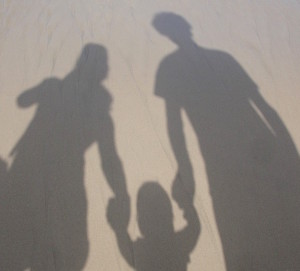Raising Little Angels is a monthly post about the struggles, joys, confusions, and questions that come with parenting. The tongue-in-cheek title refers to the fact that parenting often feels like anything but an angelic endeavor. After all, we don’t want little angels; we want little saints!
 I know some amazing parents (note this sentence! We’ll come back to it). My guess is that the overwhelming majority of parents who read this blog are pretty amazing parents. There is, however, some disagreement, even among amazing parents, on how and whether to praise children. Some parents praise everything their child does: “Talulah! You drank all your milk and ate all of your peas. You’re such a good girl. You’re so good at eating your dinner.” Other parents hold the belief that praising their child for behaviors that they should engage in anyway will create spoiled little monsters. Both praising styles are on to something–the each hold buds of truth. Proper praise motivates children, while the wrong kind of praise causes negative consequences and self-defeating behavior.. More pointedly:Praise is good, but the wrong kind of praise can be harmful. Research by Carol Dweck, a psychologist out of Stanford, helps shed some light on the praise problem.
I know some amazing parents (note this sentence! We’ll come back to it). My guess is that the overwhelming majority of parents who read this blog are pretty amazing parents. There is, however, some disagreement, even among amazing parents, on how and whether to praise children. Some parents praise everything their child does: “Talulah! You drank all your milk and ate all of your peas. You’re such a good girl. You’re so good at eating your dinner.” Other parents hold the belief that praising their child for behaviors that they should engage in anyway will create spoiled little monsters. Both praising styles are on to something–the each hold buds of truth. Proper praise motivates children, while the wrong kind of praise causes negative consequences and self-defeating behavior.. More pointedly:Praise is good, but the wrong kind of praise can be harmful. Research by Carol Dweck, a psychologist out of Stanford, helps shed some light on the praise problem.
 “Remember man you are dust and to dust you shall return.”
“Remember man you are dust and to dust you shall return.” We are all broken. We think of this as our biggest liability, but the reality is that the beauty in our brokenness is overwhelming.
We are all broken. We think of this as our biggest liability, but the reality is that the beauty in our brokenness is overwhelming. This weekend’s upcoming release of 50 Shades of Grey has inspired a flurry of Catholic bloggers to take to their keyboards to thoughtfully and truthfully educate Catholics (and any others willing to listen) about how the film’s message promotes the degradation and objectification of the human person through the glorification of sexual violence against women. Bishop Aquila wrote a nice piece explaining the
This weekend’s upcoming release of 50 Shades of Grey has inspired a flurry of Catholic bloggers to take to their keyboards to thoughtfully and truthfully educate Catholics (and any others willing to listen) about how the film’s message promotes the degradation and objectification of the human person through the glorification of sexual violence against women. Bishop Aquila wrote a nice piece explaining the  It’s no secret that children growing up in our society face a multitude of challenges. They face the ubiquitous presence of alcohol and drugs, media saturated with sexuality, and a culture that struggles to plausibly stand behind basic values. Not to mention a high likelihood that they will not make it to adulthood with both parents in the same stable marriage. As parents, we want to find ways of shepherding our children through these dangers, and we often go to great lengths to provide worthwhile, productive and affirming experiences.
It’s no secret that children growing up in our society face a multitude of challenges. They face the ubiquitous presence of alcohol and drugs, media saturated with sexuality, and a culture that struggles to plausibly stand behind basic values. Not to mention a high likelihood that they will not make it to adulthood with both parents in the same stable marriage. As parents, we want to find ways of shepherding our children through these dangers, and we often go to great lengths to provide worthwhile, productive and affirming experiences.